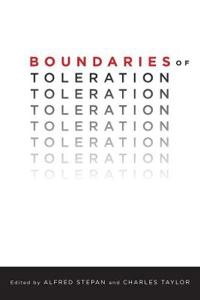

Boundaries of toleration
- Utgiven: 2014
- ISBN: 9780231165679
- Sidor: 328 st
- Förlag: Columbia University Press
- Format: Häftad
- Språk: Engelska
Om boken
Åtkomstkoder och digitalt tilläggsmaterial garanteras inte med begagnade böcker
Mer om Boundaries of toleration (2014)
I februari 2014 släpptes boken Boundaries of toleration skriven av Alfred Stepan, Charles Taylor, Alfred Stepan, Charles Taylor. Den är skriven på engelska och består av 328 sidor. Förlaget bakom boken är Columbia University Press.
Köp boken Boundaries of toleration på Studentapan och spara pengar.
Referera till Boundaries of toleration
Harvard
Oxford
APA
Vancouver



















